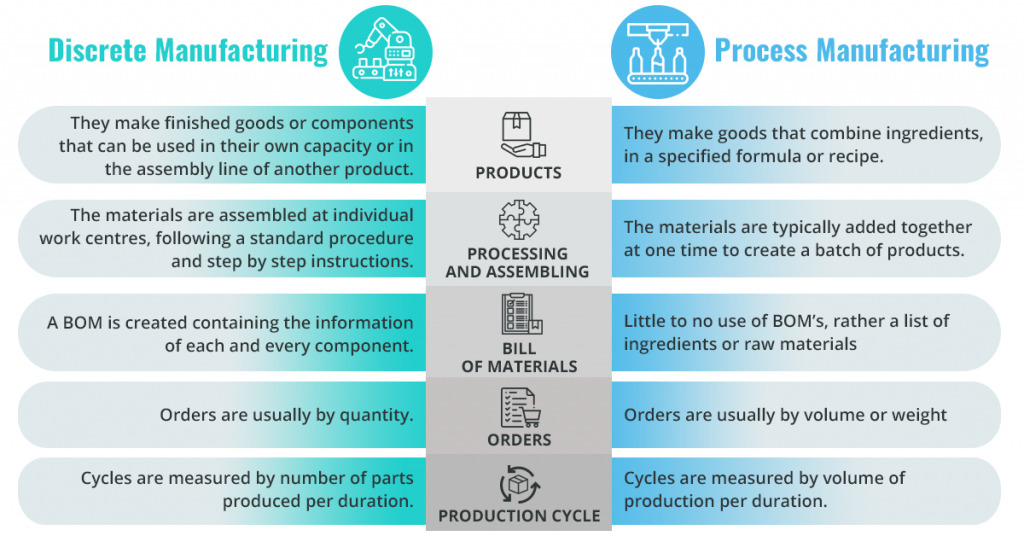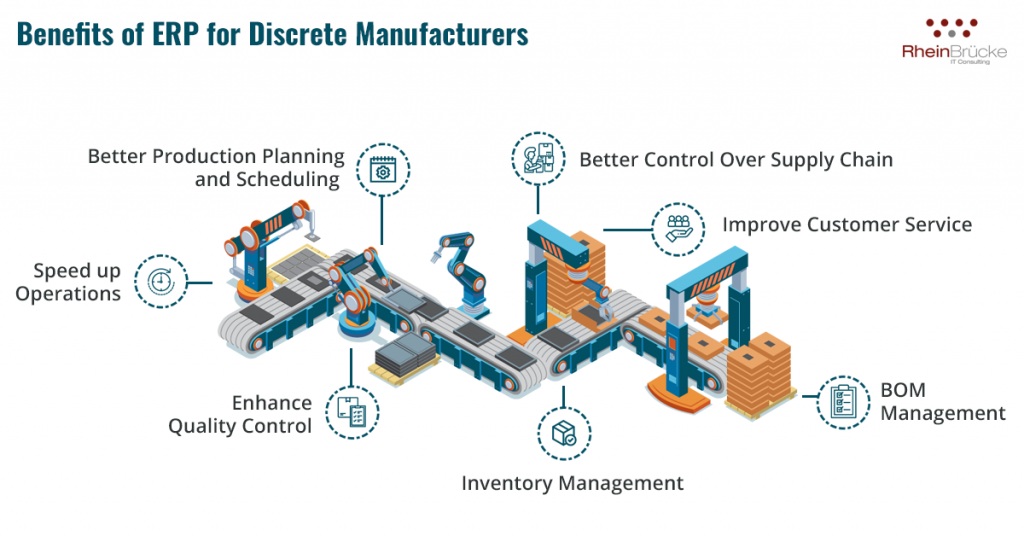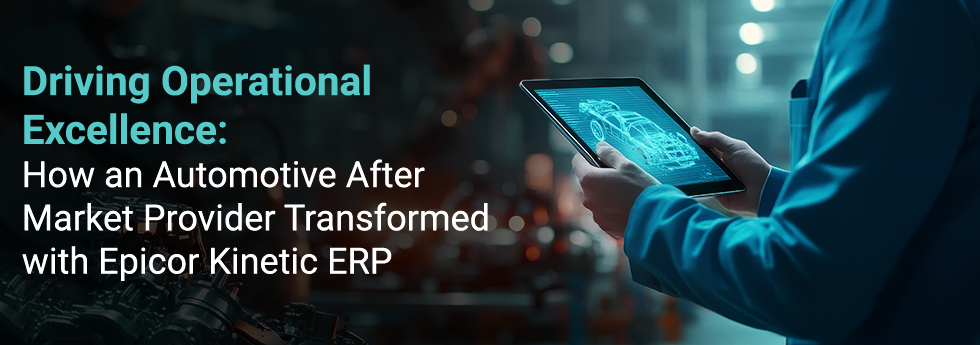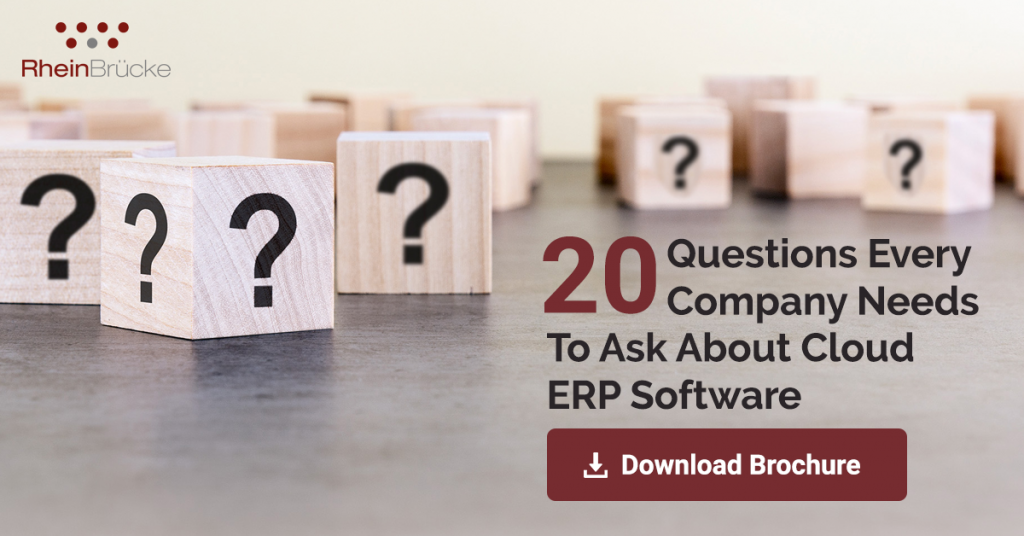
What is Discrete Manufacturing?
When we think of manufacturing we tend to think of factories, machines, and recipes/formulas that need to be followed to get the right mixture. But there is a difference between discrete manufacturing and process manufacturing. Discrete manufacturing is a term used for manufacturing industry products that are distinct. These manufactured items can be counted, touched, and seen. Discrete manufactured products constitute the assemblies or parts of the final individual product. Another distinct characteristic of discrete manufactured goods is that they can be broken down, disposed of, or recycled at the end of their product lifecycle. Whereas process manufactured goods which are manufactured mixing raw materials or ingredients following a well-defined formula or recipe, such as food, beverages, refined oil, gasoline, pharmaceuticals, chemicals and plastics cannot be disassembled into constituent ingredients and are more often just disposed of at the end of the cycle.
Discrete manufacturing industry, often makes different components of the product in different locations and then the components are assembled in one location to make the final product. For example, in case of a washing machine, the water inlet valves may be built in the same factory as the drain pipe whereas printed circuit board and the timers may be built in another location, and the final assembly would be done elsewhere.
Difference between Discrete and Process Manufacturing:
Let’s dive a little deep into the differences between discrete and process manufacturing. It is important to understand the fundamental distinctions between the two manufacturing methods.

Challenges in Discrete Manufacturing Industry
Now that there is a broad understanding of Discrete Manufacturing, let’s look at some of the issues faced by the industry. There is a fair amount of complexity in discrete manufacturing. A few examples of discrete manufacturing industries include industrial equipment, space technology, automobiles, consumer electronics, and aviation. Since these industries constitute a major share of the global economy, there would be a drastic impact if something went wrong in the manufacturing process. But what could go wrong? Few of the challenges faced by discrete manufacturers are mentioned below:
Fluctuating Prices
With a large market, supply chain disruptions and numerous companies battling to be on top, it is nearly impossible to predict the prices of materials. No one knows if the price is going to go up or down. And we are talking not just about the price of materials, but the cost and availability of labour as well. The objective is to keep the cost of manufacturing at a minimum and maintain their profit margins.
Product designs and quality
The components manufactured have specifications and these specifications are prone to change based on the customer’s requirements. And since customer is king, the manufacturers will have to find ways of making the necessary tweaks to the products they offer based on the demand patterns of the customer. This pressure puts the product innovation and quality at risk as some compromises may have to be made in the manufacturing of the product.
Meeting timeframes
The demand for new and better products is always increasing. This means more opportunities for the discrete manufacturers. But it also means working on short time frames to get the job done in order to keep their business going. This “faster time to market” requirement puts the quality of the products at risk.
How Does Having an ERP Help Discrete Manufacturers?

The focus of discrete manufacturers is to bring products to market faster while maintaining the quality of the products. Sustaining quality and producing a product tailormade to the customer is a difficult task. Difficult but not impossible. It is perfectly possible with the support of an Enterprise Resource Plan (ERP) system to overcome the bottlenecks and maintain uniformity in the quality of the products. Here’s how an ERP will solve some of the problems in the discrete manufacturing industry:
Better control over the supply chain:
As we discussed before, discrete manufacturing is a fairly complex process. It is all about meeting customer specifications while keeping the price competitive. Having a good visibility and control on the supply chain is essential in any form of manufacturing. Having an efficient ERP system can support the supply chain through effective supplier relationships, logistics, invoicing and payments monitoring and ensuring smooth running of business process.
BOM Management:
The specifications for the components to be manufactured are listed in a BOM (Bill of Materials), a list of the raw materials, sub-assemblies, intermediate assemblies, sub-components, parts, and the specific quantities of each needed to manufacture an end product. An ERP helps to generate and store the BOM versions in a repository. Many of today’s ERP systems even allow the use of configurable BOMs which will combine existing parts and subassemblies as a sales order is entered, to meet the exact configuration your customer wants. A BOM is a critical part of your material planning, quality, and control systems. Thus, managing BOM through your ERP system will improve inventory flow, material planning, and ultimately, strategic advantage for your manufacturing business ensuring automation and control beyond MRP (Materials Resource Planning).
Automation speeds up operations:
If anything, the technology guarantees speed and accuracy. So, the repetitive processes that are time-consuming can be automated to save time and effort. And with some of these laborious tasks undertaken by the system, the manufacturer can focus his efforts on other areas that require special attention.
Inventory Management:
Having proper inventory records is more important than ever. It is important to know how much the materials is available at any specified period of time. An Enterprise Resource Plan sets the minimum inventory levels and will alert if the stock levels decrease – the entire MRP process which can be very time-consuming can be streamlined and automated.
Improve Customer Service:
“Customer is king” is a slogan we have heard enough times in management discussions and training sessions. It’s true. Providing the right product to suit the customer needs should be a target for all manufacturers. The CRM tool that comes built-in with modern ERPs gives updates on the satisfaction levels of the customers. And that is not the end of it. It monitors the status of any orders that is placed with the manufacturer by any customer. Customer feedback can be collected through the same platform and the manufacturer can make a predictive analysis for future orders that may come from the same customer. It also helps to track any issues that the customer has raised.
Quality Control:
Quality of production should keep getting better. This is something all manufacturers strive for. There are various methods and metrics to ensure the quality of products are up to the standards. Check sheet, Pareto chart, Scatter diagrams, cause & effect etc are some quality management tools that are readily available in ERP systems.
Technology is changing every day. And the business environment is changing with it. To stay in the game, it is important that the business is armed with the right tools to compete. With an efficient ERP system in place ongoing operations are much more simplified. And with the operations simplified, half your troubles are taken care of. An ERP solution helps combine employee efforts and the resources that of the organisation to provide the best value to the customer.
The Future – Cloud ERP’s
The functions of ERPs are pretty much clear. Automation of services and support, reducing time to market, better inventory management, order tracking, invoice management etc, are features that almost all ERPs in the market are offering. But as Charles Darwin said, “It’s not the strongest or the most intelligent who will survive but those who can best manage change”. Cloud ERP is the future, especially in the context of managing business disruptions and work from home situations much more seamlessly.
Cloud computing is the availability of computer system resources especially data storage and computing power in a remote location. Cloud based ERPs can also be customised to the handle specific business scenarios. With the combined support of analytics and IoT, customers can have better visibility of operations. Most importantly, the deployment of a cloud ERP is much quicker than on-premise ERP.
Manufacturers need to take advantage of the most modern technology to stay ahead in the game. To look at why cloud ERPs will be the future for discrete manufacturers, support for the following features are to be considered:
Additive manufacturing:
A new approach to building stronger and lighter industrial components. Additive manufacturing uses computer-aided design (CAD) and 3D object scanners to produce precise geometric shapes of the required material. Any modifications or ‘additions’ can be made through the inclusion of materials to the already designed prototype, giving the manufacturers more flexibility in their production process.
Internet of Things:
As the name suggests, it is the process of transforming the manufacturing process through connecting machines, sensors, and other devices to the largest network – the internet. The Industrial Internet of Things has its impact on the following areas:
Field operations and Shop floor: Operations are monitored throughout the production process. How? Through parameters such as equipment calibration, the production speed of machines, and environmental conditions. The IoT solution provides visibility into how well the machines are functioning and provides alerts when they are being overworked.
Industrial Asset Management: IoT-driven asset management comprises of inventory management and machine maintenance. The IoT solution helps you automate the monitoring and tracking of the status of inventory items as each of the items gets labeled and the scanned label is transmitted onto the cloud for storing and processing. The machines are equipped with sensors to monitor consumption as well as production. And the data collected through these sensors are transferred onto the cloud, which is later analyzed to predict when stock needs to be replenished.
Supply Chain for Manufacturing: IoT is applied to monitor the conditions under which the materials are stored and delivered. The product description, the delivery schedule, the special storage requirements if any are all made accessible on the cloud.
Outsourced Operations: The demand for customization, may prompt the manufacturers to outsource some of their operations. But these operations will be difficult to monitor through traditional means. IoT-driven monitoring helps keep an eye on the team’s performance without physically being present on the factory floor.
Manufacturing System Integration:
Manufacturing Execution Systems, Product Lifecycle Management, and ERPs are a necessity in the manufacturing industry. MES is designed to manage manufacturing-related information in real-time. Using a PLM system enables manufacturers to have continuous access to product records at any given time of the cycle. While choosing an ERP, ensure that is can be integrated with existing or planned MES and PLM solutions.
As you can see, cloud ERPs have multiple advantages. ERPs such as EPICOR offer seamless integrations with factory floor devices and offer IoT solutions to transfer data directly into the system, improving visibility. EPICOR is an integrated solution that is capable of automating various business processes. With modules such as Configure to Order, Make to Order, and Engineer to Order, the solution is equipped to support the manufacturing process of all industries.
Contact us to know more about EPICMake, our Template Solution for Epicor ERP for Discrete Manufacturing Industry.
Related Blogs
- How to Build a Future-Ready Digital Strategy
- Driving Operational Excellence: How an Automotive After Market Provider Transformed with Epicor Kinetic ERP
- How Generative AI Is Reshaping B2B Digital Transformation in 2026
- 7 Game Changing Benefits of AI and Automation in ERP
- 10 Must-Have Features in a Modern ERP System




